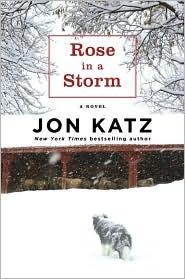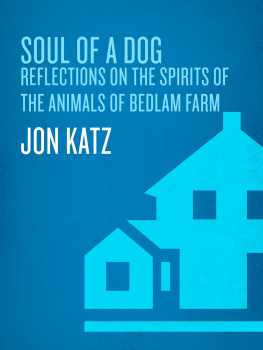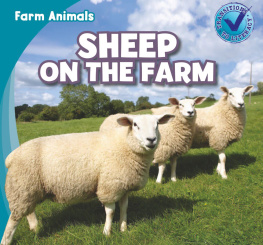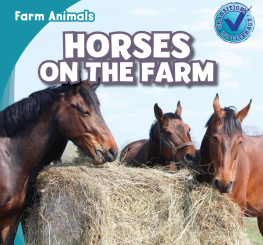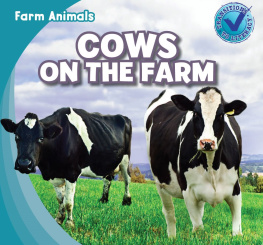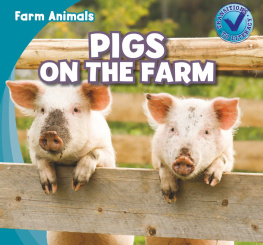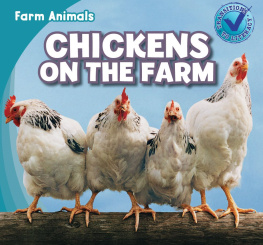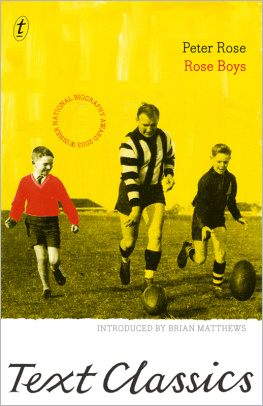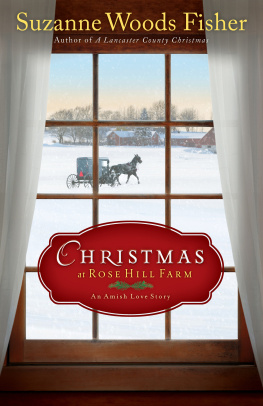ALSO BY JON KATZ
Soul of a Dog Izzy & Lenore A Good Dog Katz on Dogs The Dogs of Bedlam Farm The New Work of Dogs A Dog Year Geeks Running to the Mountain Virtuous Reality Media Rants Sign Off Death by Station Wagon The Family Stalker The Last Housewife The Fathers Club Death Row a cognizant original v5 release november 11 2010

Rose in a Storm is a work of fiction. Names, characters, places, and incidents are the products of the authors imagination or are used fictitiously. Any resemblance to actual events, locales, or persons, living or dead, is entirely coincidental.
Copyright 2010 by Jon Katz
All rights reserved.
Published in the United States by Villard Books, an imprint of The Random House Publishing Group, a division of Random House, Inc., New York.
V ILLARD B OOKS and V ILLARD & V C IRCLED Design are registered trademarks of Random House, Inc.
eISBN: 978-0-345-52296-2
www.villard.com
Photograph by Jon Katz
v3.1

TO THE REAL ROSE
There is no greater glory than to die for love. G ABRIEL G ARCA M RQUEZ , Love in the Time of Cholera
Contents
ONE
I NSIDE THE FARMHOUSE R OSE LIFTED HER HEAD AND PRICKED UP her ears. She heard the troubled wheezing of a ewe. From the window, through the dark, she could see mist, mud, and the reddish shadows of the barns. She pictured the herd of sheep lying still, spread out behind the feeder.
Raising her nose toward the pasture, she smelled the rich, sticky scent of birth, of lamb. She smelled manure and fear.
She heard a gasp, the sound of death or desperation, and then one ewe calling to the others in alarm. She stood and padded quickly from the window to the side of the farmers bed, then looked up at his sleeping face. She barked once, insistently and loudly.
S AM , THE FARMER , startled awake from a dream of Katie in the dark January night. He muttered, Are you sure? and mumbled something about a nights sleep, but got out of bed, pulling on pants and a shirt.
He knew better than to ignore Rose, especially at lambing time. She seemed to have a sort of map of the farm inside her head, a picture of how things ought to be. Whenever something was wrong or out of placean animal sick, a fence down, an unwelcome intrudershe knew it instantly, and called attention to it, sniffing, barking, circling. She constantly updated the map, it seemed to Sam.
Occasionally her map failed or confused herbut that was rare. Sam saw to it that Rose was always with him, that she was apprised of everything that came and wentevery animal, every machineso she could keep her mental inventory.
Among his friends, Sam called Rose his farm manager. They had been together for six years, ever since he had driven over to the Clark farm in Easton and seen a litter of border collie/shepherd mix pups. He had still been debating with himself about whether to get a herding doghe had no idea how to train one, and no time to do it, anyway.
But, perhaps picking up the scent of sheep, Rose ran right over to him, looking so eager to get to work, even at eight weeks old, that he brought her home. A few weeks after she arrived, some sheep had wandered through an unlatched gate and across the road, and Rose shot out of the house through the newly installed dog door, corralled them, and marched them back, working on instinct alone. She certainly had no help from Sam, who wasnt even aware that the sheep were at liberty. The two had been working side by side ever since.
From then on, Sam would shake his head whenever he saw the elaborate, highly choreographed herding trials on television. Rose grew into the role on her own; she simply seemed to know what to do. The farm, he told his friends, was the worlds greatest trainer. And the sheep did what she told them to, which was all Sam really cared about. Get them from one place to another. Didnt have to be pretty, though sometimes it was beautiful.
The relationship had grown way beyond anything Sam understood at first, or even imagined. It was more like a partnership, he had told Katie, an understanding subtler than words. It was something he lived, not something he thought much about.
I think you love that dog more than me, Katie would sometimes joke. Sam would blush and stammer. Shes just a dog, he would say, because he could not say what Rose truly meant to him.
Now he could tell from the urgency of Roses bark that something was wrong. She kept tilting her ears to the pasture, agitated, eager to get outside.
So on this cold and windswept night, Sam, a tall, thin man with what had once been a ready smile and a full head of reddish-brown hair, went downstairs and got a flashlight, pulled on a jacket and boots, and he and Rose walked out the back door and into the night. Even in the dark, in the reflected light of the moon, he could see the glow of her fiercely bright-blue eyes.
T HE FARMHOUSE SAT at the bottom of a gentle, rolling pasture. By the back door, there were two paths. The one to the left led out into the woods, and the one to the right ran toward the two barns and the pasture gates.
The first barn was big, filled with hay up in the loft and tractors, and sometimes cows, down below. A shed was attached to the big barn, which housed equipment and supplies, as well as some feed. Farther up the hill was a large pole barn. A three-sided structure with the fourth side open to the air, it allowed the sheep to be outside, which they preferred, while still offering some shelter from the elements. When they were kept inside a closed barn, they got fearful, claustrophobic, bleated day and night. Anyway, it was the way Sams father had done it. The three buildings formed a triangle: the farmhouse at the bottom, the big barn off to one side nearby, the pole barn a hundred yards up the hill. The cows were in the other pasture on the far side of the barn.
A few hundred feet from the farmhouse, the path led to a gate that connected to a fence encircling all of the pastures and barns. Sam was proud of that fence. Hed spent years shoring and patching it, and in the past year or so, no animal had slipped out, or in.
As they neared the barn, Sam finally saw in the beam of light from his flashlight what Rose had heard and sensed, up behind the building. He moved faster, opening the pasture gate. Rose raced through and ran to the struggling ewe. Sam retrieved his sack of medical equipment from the barn and hurried behind the dog up a path well worn by the animals, marked by manure and ice-encrusted mud, pungent even in winter. The big barn was on the right, looming like a great battleship, its lights sending small beams out into the dark, foggy pasture. That old barn had a lot of stories to tell.
The lambing shed where Sam had put this pregnant ewe a few days earlier was also open on one side, though protected from the snow and wind. An open hatchway led from the lambing shed inside the barn to an area warmed by heat lamps and lined with hay and straw, where the ewes could take their newborn lambs. With this arrangement, they were outside when they went into labor, so they could be near the other sheep, and Sam could still see and hear them from the house. Or at least Rose could.
He trained his light on the sick ewe, number 89. Her wheezing had calmed, which was an ominous sign, and she lay still, on her side, in the corner of the pen in a bed of hay.
Rose waited for Sam to open the birthing pen gate, then rushed in to the mother and attempted to rouse her, nipping at her nose and chest.

